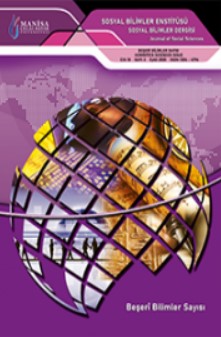An Investigation of the Relation between Pre-service EFL Teachers’ Epistemological Cognition and Teaching Approaches
An Investigation of the Relation between Pre-service EFL Teachers’ Epistemological Cognition and Teaching Approaches
Author(s): Özkan Kırmızı, Aydan IrgatoğluSubject(s): Foreign languages learning, Epistemology, Language acquisition, Cognitive linguistics, Cognitive Psychology
Published by: Celal Bayar Üniversitesi Sosyal Bilimler Enstitüsü
Keywords: Epistemological cognition; Teaching approaches; Innate/fixed ability; Pre-service EFL teachers;
Summary/Abstract: This study was undertaken to investigate the relation between pre-service EFL teachers’ epistemological beliefs and their approaches to teaching. The participants are 105 pre-service EFL teachers, selected based on a random sampling method. To measure pre-service EFL teachers’ epistemological beliefs, The Epistemological Beliefs Survey, developed by Chan and Eliott (2004), was used. This survey conceptualizes epistemological beliefs under four dimensions; namely “innate/fixed ability, learning effort/process, authority/expert knowledge, and certainty knowledge.” To measure, preservice EFL teachers’ approaches to teaching, the Approaches to Teaching Inventory, developed by Trigwell, Prosser, and Ginns (2005), was utilized. This tool has three major subdimensions; “transmission-based, student-teacher interaction, and student focus.” Descriptive and correlational statistical analyses were used. The results indicated that pre-service EFL teachers moderately agree with the sub-dimensions of epistemological beliefs and the most important sub-dimension that predict teaching approaches is the effort dimension of epistemological beliefs.
Journal: Celal Bayar Üniversitesi Sosyal Bilimler Dergisi
- Issue Year: 19/2021
- Issue No: 02
- Page Range: 217-232
- Page Count: 16
- Language: English

